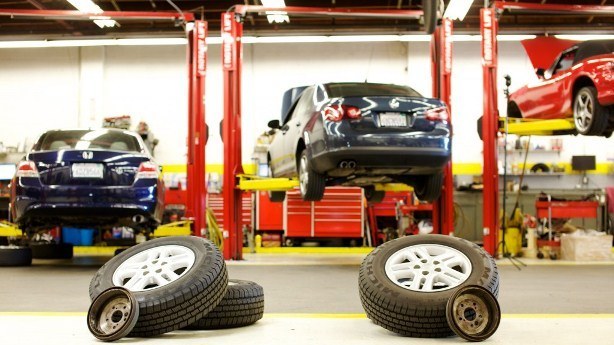All Categories
Featured
A well-kept engine is the essential to your auto's long life and height efficiency. Regular engine tune-ups not only enhance fuel effectiveness yet additionally decrease the chance of unexpected malfunctions. Whether you're a cars and truck enthusiast or a person who just wishes to stay clear of costly repair services, these engine tune-up tips will keep your lorry running like a dream.

- Replace the Spark Plugs. The stimulate plugs stir up the air-fuel mixture in your engine, and their effectiveness straight influences engine efficiency. With time, trigger plugs can wear, leading to misfires, minimized fuel economic situation, and slow-moving velocity.
During a tune-up, inspect and change spark plugs if they reveal indicators of wear, such as residue buildup, corrosion, or splits. Depending upon your vehicle, stimulate plugs might need to be changed every 30,000 to 100,000 miles.
- Inspect the Ignition System. Your vehicle's ignition system, that includes the ignition coils, supplier, and wires (if relevant), is accountable for supplying the trigger that powers your engine. Damaged ignition elements can cause starting concerns and rough engine procedure.
Look for harmed or worn parts and change them during your tune-up. Making certain a healthy and balanced ignition system will enhance engine integrity and efficiency.
- Tidy or Change the Air Filter. A clean air filter allows your engine to "breathe" appropriately by making sure a constant circulation of clean air. Gradually, dust and debris can clog the filter, decreasing air flow and influencing gas efficiency.
Examine the air filter during a tune-up and change it if it's filthy. For motorists in dusty or contaminated locations, air filters might require to be altered much more regularly.
- Check and Clean the Fuel System. The gas system, including the fuel injectors, gas pump, and fuel lines, can accumulate deposits gradually, decreasing gas distribution and engine performance. Utilize a fuel injector cleaner or have your system skillfully cleaned up during a tune-up to restore correct performance.
On a regular basis maintaining your fuel system makes certain far better combustion and maximizes your engine's effectiveness.

- Change the Engine Oil and Oil Filter. Engine oil is essential for lubrication, air conditioning, and minimizing rubbing in between relocating parts. In time, oil degrades and gathers debris, shedding its effectiveness.
Throughout a tune-up, replace the engine oil and oil filter. Following the supplier's recommendations for oil type and modification intervals is vital to keeping your engine in optimal problem.
- Inspect the Belts and Tubes. The belts and pipes in your engine compartment play essential functions in powering elements like the generator, water pump, and cooling system. Use and tear in time can cause fractures, fraying, or leakages.
Examine the problem of belts and hoses during your tune-up and change any that reveal indications of damage. Proactively dealing with these problems can prevent costly repair services and unforeseen failures.
- Examine the Battery and Electrical System. A weak or stopping working battery can leave you stranded. During your tune-up, examination the battery's voltage, inspect the terminals for corrosion, and ensure the links are limited.
In addition, have the alternator and starter inspected to ensure they're functioning correctly. Resolving electrical system concerns early can conserve you from troublesome shocks.
- Inspect the Cooling System. The cooling system stops your engine from overheating, which can cause serious damage. During a tune-up, check the radiator, pipes, and water pump for leakages or wear.
Flush and change the coolant if it's unclean or has exceeded its recommended life span. Correct air conditioning system upkeep aids your engine operate within its ideal temperature range.
- Address Dashboard Warning Lighting. Modern cars are outfitted with innovative diagnostic systems that brighten advising lights when issues develop. If your control panel shows any type of advising lights, such as the check engine light, resolve them during the tune-up.
A specialist technician can utilize diagnostic tools to identify and deal with the trouble, avoiding tiny concerns from intensifying.
- Maintain Your Engine Clean. A tidy engine runs cooler and is easier to check for potential issues. Remove dirt, oil, and crud from your engine bay during a tune-up. Use a degreaser and a mild brush for cleaning, and stay clear of splashing water directly on electric elements.
Verdict: Tune-Ups Are the Trick to Engine Long Life. Routine engine tune-ups are a financial investment in your automobile's wellness, performance, and efficiency. By replacing worn parts, cleaning vital systems, and dealing with concerns early, you'll guarantee your auto remains trusted for many years to find. Whether you're dealing with the tune-up on your own or taking your cars and truck to a relied on auto mechanic, complying with these ideas will certainly keep your engine going for its best and help you prevent unexpected repair services. A well-maintained engine does not simply save you cash-- it guarantees satisfaction when driving.
Latest Posts
Discover High Quality Furniture at Bare Bones Furniture in Queensbury, NY
Fix My Car Near Me Fast! at MO
Revitalize Your Furniture with Expert Repair Work Services